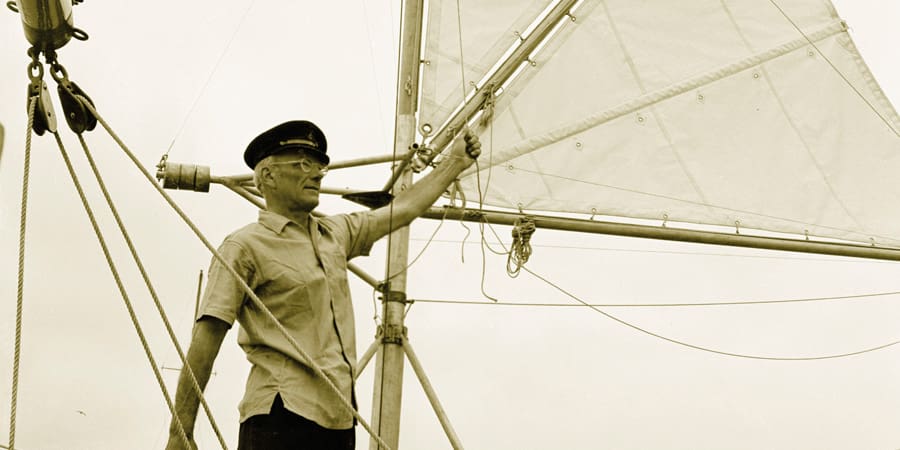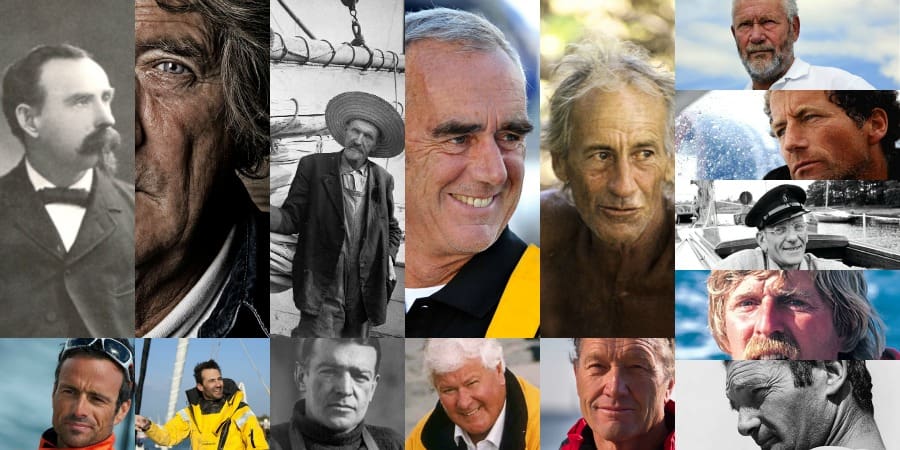On 27 August 1966 Francis Chichester sailed his yawl Gipsy Moth IV from Plymouth in the United Kingdom and returned there after 226 days of sailing on 28 May 1967, having circumnavigated the globe, with one-stop (in Sydney).
By doing so, he became the first person to achieve a true circumnavigation of the world solo from West to East via the great Capes.
The voyage was also a race against the clock, as Francis Chichester wanted to better the typical times achieved by the fastest fully-crewed clipper ships during the heyday of commercial sail in the 19th century (the first recorded solo circumnavigation of the globe was achieved by Joshua Slocum in 1898 but it took him three years with numerous stops – Slocum also took up the harder challenge of sailing east to west, against the prevailing wind).
The great adventure of Francis Chichester
In 1958, Chichester was diagnosed with terminal lung cancer. (This might have been a misdiagnosis; David Lewis, a London doctor, who competed against Chichester in the first solo trans-Atlantic race, reviewed his case, and called Chichester’s abnormality a “lung abscess”.) His wife Sheila put him on a strict vegetarian diet (now considered to be a macrobiotic diet) and his cancer went into remission. Chichester then turned to long-distance yachting.
In 1960, he entered and won the first Single-Handed Trans-Atlantic Race, which had been founded by ‘Blondie’ Hasler, in the 40-foot ocean racing yawl Gipsy Moth III. He came second in the second race four years later.
On 27 August 1966 Chichester sailed his ketch Gipsy Moth IV from Plymouth in the United Kingdom and returned there after 226 days of sailing on 28 May 1967, having circumnavigated the globe, with one-stop (in Sydney). By doing so, he became the first person to achieve a true circumnavigation of the world solo from West to East via the great Capes.
In July 1967, a few weeks after his solo circumnavigation, Chichester was knighted, being appointed a Knight Commander of the Order of the British Empire for “individual achievement and sustained endeavor in the navigation and seamanship of small craft”. For the ceremony, the Queen used the sword used by her predecessor Queen Elizabeth I to knight the adventurer Sir Francis Drake, the first Englishman with his crew to complete a circumnavigation. Gipsy Moth IV was preserved alongside the Cutty Sark at Greenwich.
In 1968, when Donald Crowhurst was trying to win the Sunday Times Golden Globe Race, a single-handed round-the-world event, it was Chichester who dismissed Crowhurst’s wildly exaggerated reports of his own progress, which had fooled many enthusiastic supporters.
In 1970, Chichester attempted to sail 4,000 miles in twenty days, in Gipsy Moth V, but failed by one day.
Francis Chichester died of cancer in Plymouth, Devon, on 26 August 1972, and was buried in the church of his ancestors, St Peter’s Church in Shirwell, near Barnstaple.





